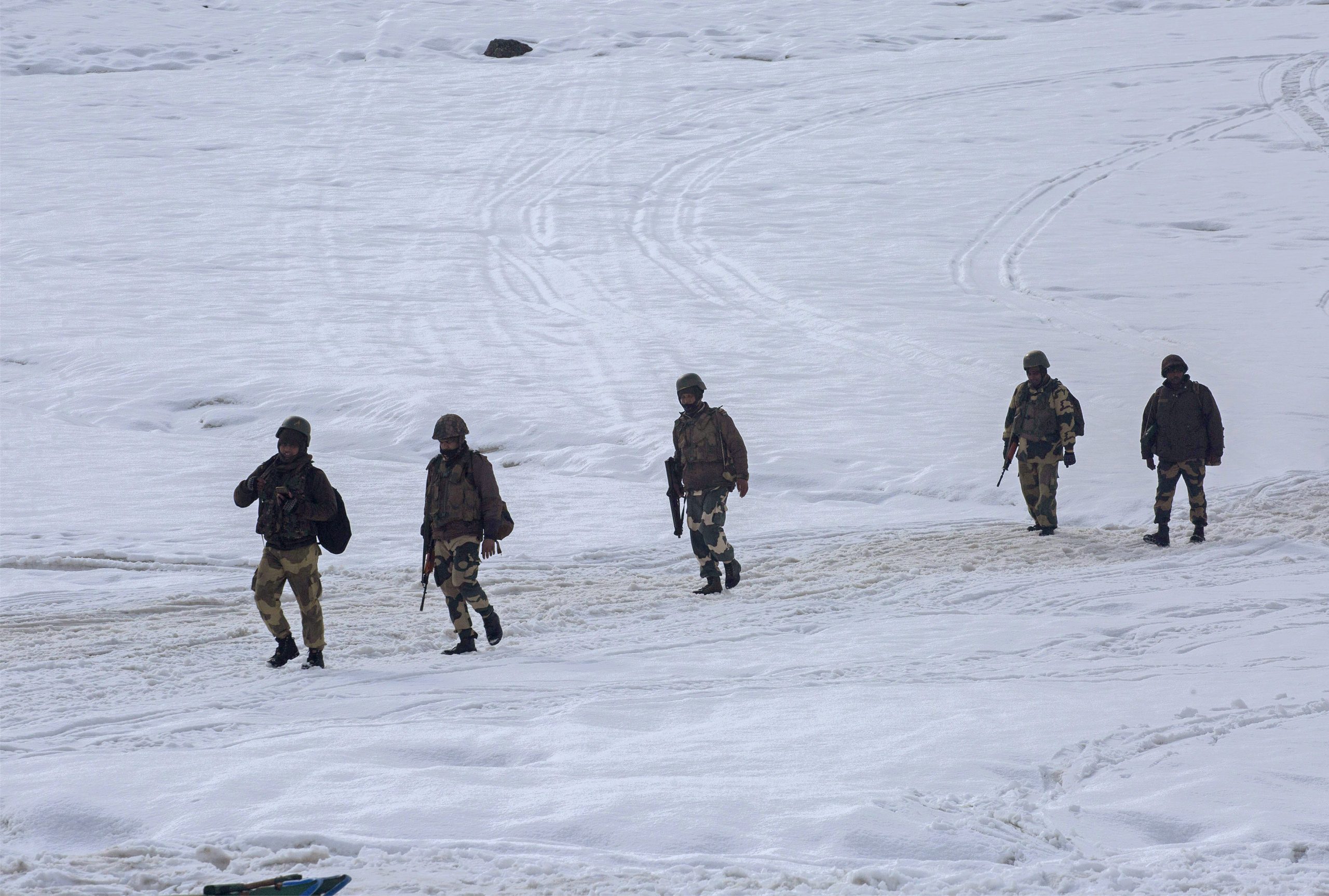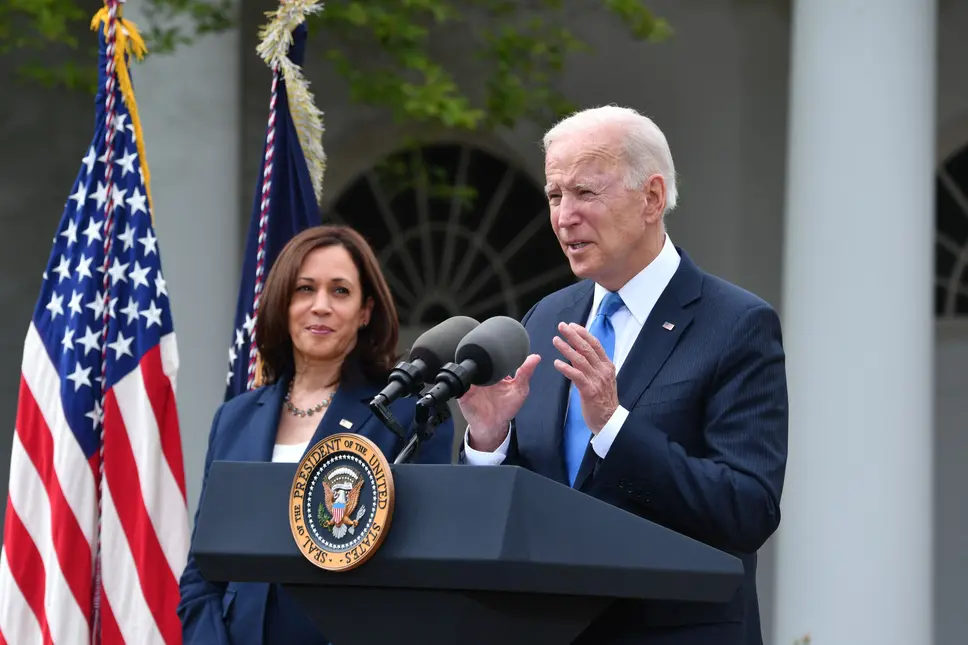Bangladesh’s prime minister was forced to quit and flee to India. As foreign powers play their games in India’s neighboring country, New Delhi will have to do a fine balancing act. Can the Modi government deal with the new regime in Dhaka?
Our Bureau
Dhaka/New Delhi/Washington, DC
After what happened in Sri Lanka last year, similar scenes were scene in the capital of Bangladesh where the streets erupted in anger against the government. Forced to leave their country, Bangladesh Prime Minister Sheikh Hasina and her associates had to rush to save themselves and most of the members who arrived in India with her did not even get time to carry along essentials with them on way to India.
Sheikh Hasina, her sister Sheikh Rehana and other associates arrived in India on Monday in a C-130 J transport aircraft from Dhaka. All the team members in her entourage came to India in a hurry as many of them could not even carry clothing or any other daily use items with them, according to sources.
The Indian protocol officials deployed with the entourage helped the members of Hasina’s team to buy clothes and other items, they said.
The team members were in a state of shock due to the experience and scenes witnessed by them back home in the last few days, the sources said. The number of associates of the two sisters from the most reputed political family of Bangladesh are in double digits and they arrived in India along with her, the sources said.
Indian National Security Advisor Ajit Doval was constantly in touch with the officials and met Hasina as soon as she landed in Delhi. The team was provided immediate help and taken to safe houses in Delhi, they said.
Bangladesh is facing a fluid political situation with Sheikh Hasina, on August 5, tendering her resignation from her post in the wake of mounting protests. The protests, led majorly by students demanding an end to a quota system for government jobs, took the shape of anti-government protests.
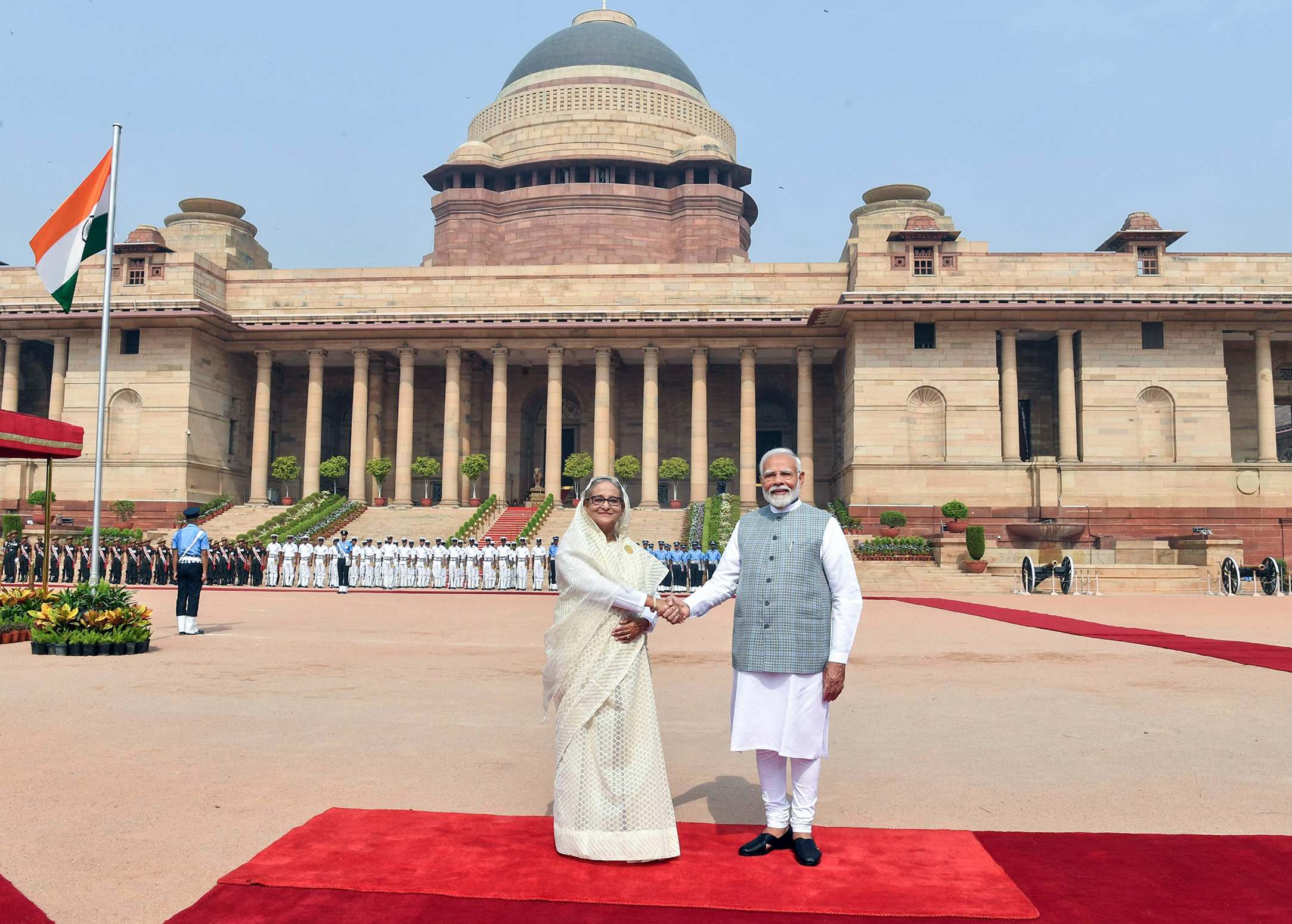
On Thursday, seventeen members of Bangladesh’s interim government took their oaths at a ceremony in Dhaka on Thursday, Bangladesh-based daily, Dhaka Tribune reported. Nobel laureate economist Muhammad Yunus, 84, was sworn in as the country’s chief advisor. Yunus was sworn in as the head of Bangladesh’s interim government on Thursday night, three days after Sheikh Hasina resigned from the position of Prime Minister and left the country amid widespread unrest.
Bangladesh’s figurehead President Mohammed Shahabuddin administered the oath to Yunus for his role as chief advisor, which is the equivalent to a Prime Minister.
The ceremony was attended by foreign diplomats, civil society members, top businessmen, and former opposition party members at the presidential palace in Dhaka. Notably, no representatives from Sheikh Hasina’s party, the Awami League, were present.
Prime Minister Narendra Modi on Thursday wished Professor Muhammad Yunus on assuming his new responsibilities as the head of Bangladesh’s interim government and emphasized bringing about an early return to normalcy and ensuring the protection of the Hindu minority.
“My best wishes to Professor Muhammad Yunus on the assumption of his new responsibilities. We hope for an early return to normalcy, ensuring the safety and protection of Hindus and all other minority communities. India remains committed to working with Bangladesh to fulfill the shared aspirations of both our peoples for peace, security and development,” PM Modi said in a post on X.
The political situation in Bangladesh remains volatile and has evolved into broader anti-government protests.
Muhammad Yunus is a Bangladeshi social entrepreneur and founder of Grameen Bank, who was awarded the Nobel Peace Prize in 2006 for his efforts to create economic and social development through microcredit.
The key tasks for Yunus will now be to restore peace in Bangladesh and prepare for the new elections.
Upon arriving in Bangladesh earlier in the day, the Nobel laureate made a heartfelt appeal to his supporters and urged the people of Bangladesh to maintain calm and end chaos, stressing that it is the “first responsibility” to ensure that no attack is carried out against anyone in the country, Daily Star reported.
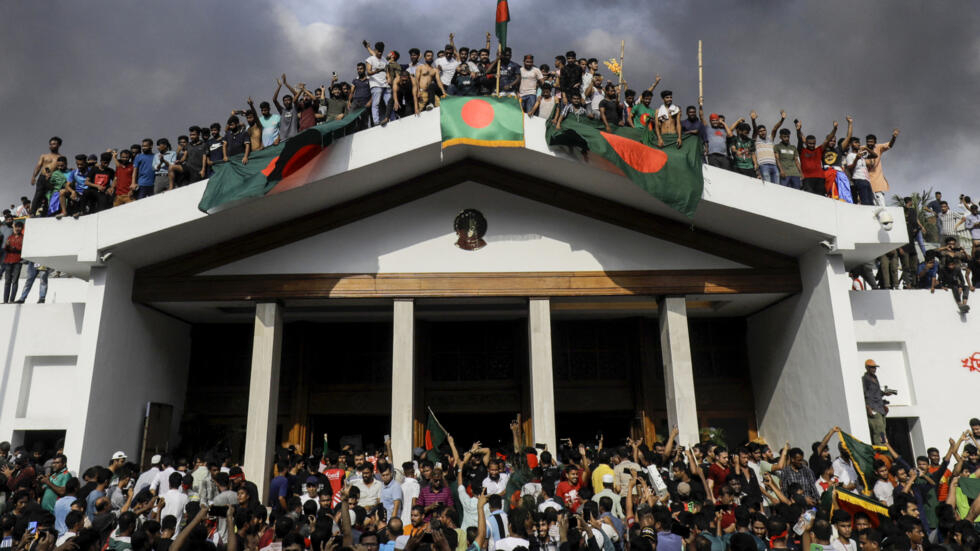
He further stressed that Bangladesh has tremendous potential but the first priority is to save the country from chaos so that the country can proceed on the “path shown by students.”
“If you have faith in me and trust me, then ensure that there will be no attack anywhere in the country. This is our first responsibility,” Yunus told a crowded press briefing at Hazrat Shahjalal International Airport upon his arrival on Thursday.
Amid the ongoing unrest in Bangladesh, reports have emerged of false narratives being created through social media to fuel anti-India sentiments among the people. Various X accounts have been found spreading disinformation about India in Bangladesh, aimed at instigating Bangladeshis against Indians.
Suvrokamal Dutta, an International Conservative Political Expert based in India, described this as malicious propaganda orchestrated by Pakistan’s Inter-Services Intelligence (ISI), supported by its army and media, to fuel anti-India hatred in Bangladesh and turn the country into another jihadist Pakistan.
He said, “The whole world knows about the nasty games played by Pakistan’s ISI and its army in toppling a legitimate, secular, and democratic government of Sheikh Hasina with active support from the BNP and the Jamaat in Bangladesh. So, this is nothing but another nasty ploy by Pakistan to defame India and raise anti-India sentiments in Bangladesh.”
D-Intent Data, a fact-checking group, also exposed this fake narrative and posted on X, “FACT: a video of an airport where uniformed men can be seen is being shared with a misleading claim that those are the Indian army at the Bangladesh airport. The fact is those are Bangladesh’s Airport Armed Police Battalion (AAP).”
It said that the protagonists intend to spread fake news targeting the Indian Army to set a narrative about the ongoing unrest in Bangladesh.
Priyajit Debsarkar, an independent geopolitical analyst based in London, said, “The present situation in Bangladesh is highly alarming. And it is not only a threat to neighboring India but also to the larger Southeast Asia and beyond.”
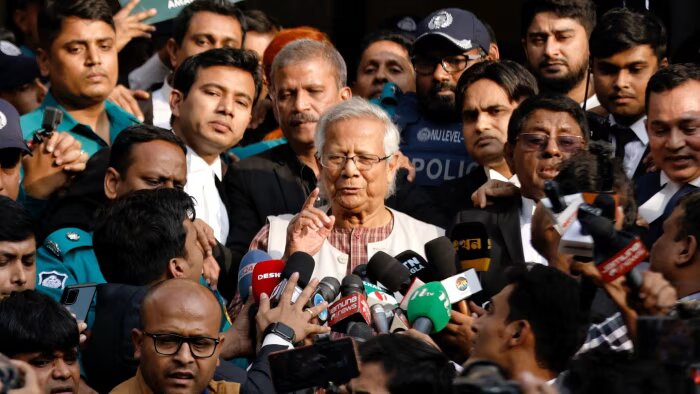
He added, “Use of misinformation and disinformation has been effectively deployed internationally to tarnish the image of Indian security agencies as a revenge manoeuvre to get some comfort from what happened fifty-three years ago, on 16 December 1971.”
Debsarkar said, “The Pakistani deep state might be jubilant in the short term but the pluralistic principles and other like-minded people of Bangladesh, including the civil society, will definitely overcome this challenge and not let the country slide on a slippery slope towards fundamentalists and those who believe against the core principles of Bengali culture and identity.”
Amid all the rumors and tension, US State Department Spokesperson Matthew Miller, in a press briefing on Wednesday, emphasized the importance of the interim government in Bangladesh making decisions that uphold democratic principles.
He expressed hope that the interim government, led by Mohammed Yunus, will contribute to long-term peace and political stability in the country. “… I have already spoken to the interim government in Bangladesh and what steps we want to see it carry out as it moves forward,” Matthew Miller said.
When asked about his expectations from the new government, Miller said, “To make stability, to build the institution, and to arrange a free, fair, inclusive election…As the interim government makes decisions moving forward, we want to see them do so in a way that respects democratic principles.”
When asked if Sheikh Hasina’s visa status would remain unchanged, Miller stated that visa records are confidential under US law and did not provide further details.
Meanwhile, amid reports of former Bangladesh Prime Minister Sheikh Hasina’s plans to seek asylum in the UK, External Affairs Minister S Jaishankar on Thursday, received a call from UK Foreign Secretary David Lammy. EAM Jaishankar and his UK counterpart discussed the situation in Bangladesh and West Asia.
“Received a call from UK Foreign Secretary @DavidLammy today. Discussed the situation in Bangladesh and West Asia,” EAM Jaishankar said in a post on X. Ministry of External Affairs Spokesperson Randhir Jaiswal, while addressing the weekly briefing said that the two spoke about the developments in Bangladesh and West Asia.
It is not clear if Sheikh Hasina will continue to stay in Delhi or move to another location later. However, on Wednesday, Sajeeb Wazed Joy, the son of former Bangladesh Prime Minister Sheikh Hasina, said that his mother has not made a decision on whether her plans for asylum are in the United States or the United Kingdom, and called it all “rumors,” The Daily Star reported.
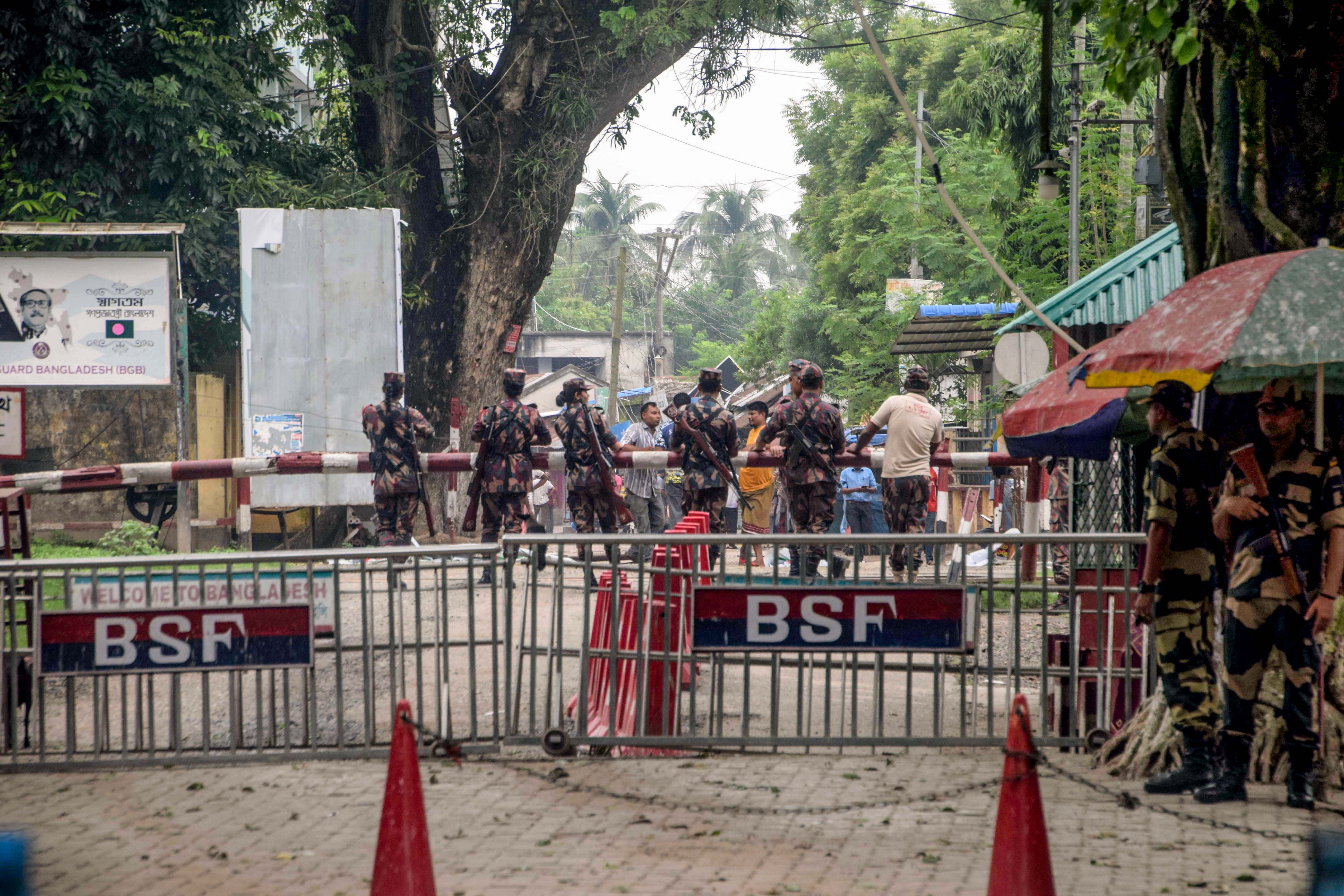
Sheikh Hasina’s son further added that she will be staying in Delhi for a while. When the interviewer asked about Hasina’s plan for asylum in the US and UK, he said, “These are all rumors. She has not made a decision on that yet. She is going to stay in Delhi for a little while.”
“Sheikh Hasina is well and now in Delhi. My sister is with her. My sister lives in Delhi… She is well, but very upset,” he added.
Indian-American Congressmen call for protection of Hindus
Indian-American Congressman Shri Thanedar on Thursday called for an end to the violence in Bangladesh, describing the current turmoil as a severe threat to the country’s democracy. He expressed deep concern over the recent unrest and attacks on minority communities.
“The ongoing turmoil engulfing Bangladesh is horrific and a threat to its democracy. Last month, students led protests for civil reforms, which was followed by deaths of hundreds and the persecution of minority populations, including Hindus, Buddhists, and Christians,” Thanedar said in a statement on recent incidents of violence in Bangladesh.
Thanedar also expressed concern over attacks targeting the minority Hindu community in Bangladesh. “I am especially concerned about reports of attacks targeting the country’s Hindu minority. Accounts of temples destroyed, homes leveled, and individuals targeted are as disturbing as they are reprehensible,” he added.
Thanedar called on all Bangladeshis to put an end to the violence. “On August 6th, Prime Minister Sheikh Hasina resigned from office and fled to India, leaving Bangladesh in disarray and the military in charge. As Bangladesh transitions to its interim government, I implore every Bangladeshi, from the leadership to the people, to put an end to the violence plaguing their country,” he said.
He also pledged to monitor the situation closely in coordination with the US State Department and expressed hope for a return to peace and stability in Bangladesh.
“I pledge to keep a close eye on developments in Bangladesh in coordination with the U.S. State Department and wish for a return to peace and stability for every Bangladeshi, no matter their beliefs,” the statement added.
Congressman Ro Khanna has urged Nobel Laureate Muhammad Yunus to uphold the rule of law and stop the targeting of temples or people of any political party from violence. Ro Khanna’s remarks come at a time when Bangladesh is facing a fluid political situation.
Taking to X, Ro Khanna stated, “Bangladeshi students had just human rights concerns against PM Hasina. It’s good she is gone. But the violence now targeting Hindus is wrong. PM Yunus must uphold the rule of law & prevent the targeting of temples or people of any political party or faith from violence.”
Sheikh Hasina’s daughter says she won’t compromise her whereabouts
Saima Wazed, daughter of Bangladeshi Prime Minister Sheikh Hasina, said on Thursday that she would not disclose her mother’s location, emphasizing the need to protect her whereabouts amid the ongoing crisis in Bangladesh.
Wazed added that she would continue her work as the Regional Director of the World Health Organization (WHO) South-East Asia Region.
“To everyone who has shown concern: as much as I would love to see Ma, I don’t want to compromise her whereabouts in any way. In the meantime, the work of improving the public health of @WHOSEARO continues!” Wazed said in a post on X.
Earlier, Saima Wazed had expressed sadness over not being able to “hug her mother” during difficult times. She also conveyed her heartbreak over the loss of lives in Bangladesh.
In a post on X, Wazed wrote, “Heartbroken with the loss of life in my country Bangladesh that I love. So heartbroken that I cannot see and hug my mother during this difficult time. I remain committed to my role as RD @WHOSEARO @WHO #HealthForAll #OneWHO.”
Saima Wazed assumed charge as the Regional Director for WHO’s South-East Asia Region in February this year. She is the first Bangladeshi and only the second woman to hold this office.


















